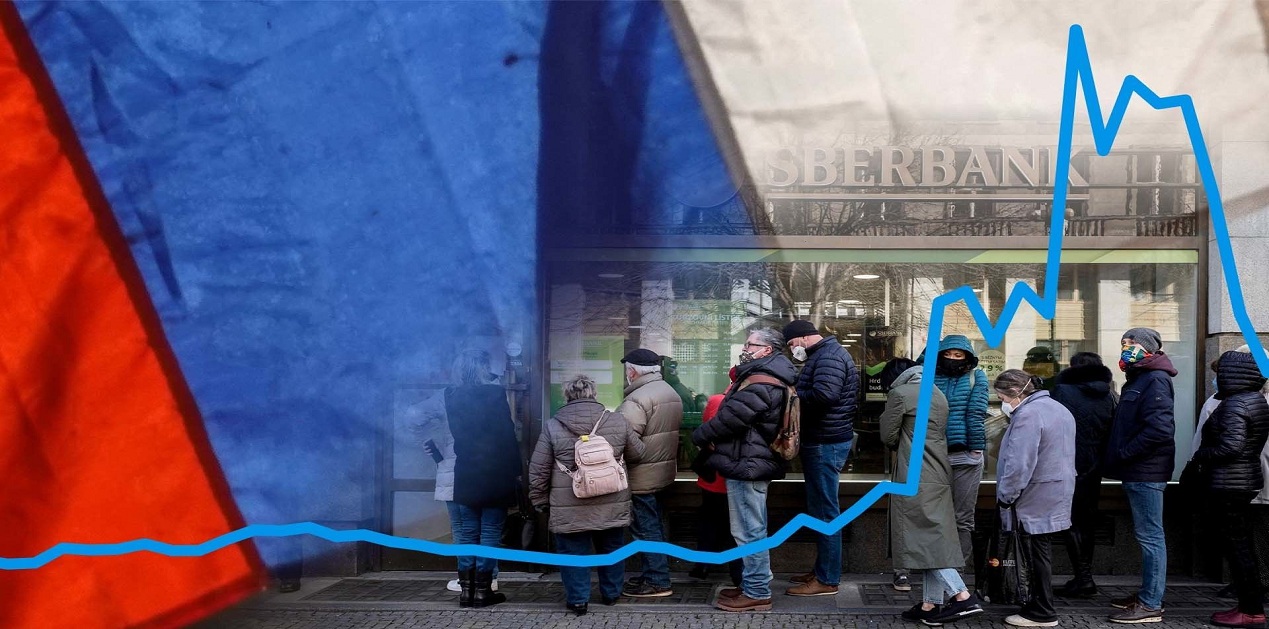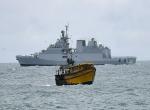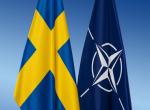The fog of war isn’t just affecting the military aspects of the Ukraine war but going beyond to fundamentally alter an international system that was already turbulent. In this context, the gamut of western economic sanctions on Russia are going beyond impacting just Russia, setting up unintended ramifications for the whole globe. And we may not have to wait long to see the impact for that. The COVID pandemic earlier had expedited trends that rose from a slowing global economy, an international order seeking reaffirmation of its norms and a heating power competition between the US and China. But the Ukraine war has forced a reckoning for the current international order that had been seeing its economic and security interests diverge for some time now. This is most evident in the US-China trading relationship being the largest in the world despite formal acknowledgements of intense rivalry. Though the rhetoric of Cold War 2.0 has gained traction, the current situation is radically different from the Cold War that succeeded World War II. Global economic interdependence and unmatched weaponry of the modern era make wars between major powers undecisive in terms of victory and a hazardous spillover for all other countries.
One thus sincerely hopes that all participants in this war still see room for diplomacy as the longer this war carries out, the longer and larger its implications will become, and not just for the innocent citizens of Ukraine. Unplugging Russia via economic sanctions from the global economy is going to be painful and arduous to navigate for both Russian leadership and Russian citizens, considering the real rise in living standards for a generation that saw the utter chaos post-Soviet collapse. And the irony is unmissable that both the economic rebuilding and the decision to go to war happened under Putin. But the history of economic sanctions is littered with examples of the nebulous efficacy of sanctions and the geopolitical effects they really bring about. Yet their limited utility has not affected frequency of use. To the contrary: sanctions use doubled in the 1990s and 2000s compared to the period from 1950 to 1985; and by the 2010s it had doubled again. Yet while in the 1985–1995 period, at a moment of great relative Western power, the chances of sanctions success were still around 35–40 percent, by 2016 this had fallen below 20 percent[1]. In this context, the ability of economic sanctions in altering the behavior of Russia raises many questions.
Despite, western media narratives reminiscing the return to the erstwhile heyday of the transatlantic alliance underlaid with growing convergence between the US and EU in responding to the war in Ukraine, today’s world is fundamentally different. With a raging inflation, supply-chain upheaval and the ever-growing prospects for a global recession, sanctioning world’s eleventh largest economy without possible backfiring is a very tall order. There may have been western overconfidence in economic sanctions as a tool of statecraft due to its never having applied economic sanctions to a major integrated global economy before and particularly on this scale. There is also possibility that fears of military escalation or the desire to avoid entanglement in another war have led to doubling down on the use of economic sanctions. Yet with heightened emotions and growing propaganda, there is limited concern to understand the second- and third-order effects of the economic war that the west has waged on Russia. As the timeline of the Ukraine war remains unclear, it is difficult to speculate how its peace settlement will shape as up Ukraine is pushed to the brink with every coming day. But what is clear is if Russia has a limited window before economic costs for the war become excruciating, the west also has a limited window to achieve its geopolitical aims.
There is a real upending of global diplomacy and global economy happening, including the norms that held them. Energy and commodity prices of crude oil, natural gas, wheat, copper, nickel, aluminum, fertilizers, and gold have soared through the roof. Because the war has effectively closed Ukrainian ports and international firms are shunning Russian exports, a grain and metals shortage now looms over the global economy[2]. Even if Russia faces technology embargo for semiconductor chips to automobiles, the realities of its being major producer of say palladium and nickel allow it to impact the supply chain upstream. Moreover, Russian counteractions to prohibit exports of certain products and raw materials in early March further exacerbate the shortages. As the war disrupts agricultural activities of both Russia and Ukraine who are major exporters of staple commodities, food insecurity amidst already high international food and input prices raises new vulnerabilities. While both EU and the US are seeing early food shortages and high fertilizer prices, the impact for poorer countries in Middle East, Africa and Asia is going to be multiplied as their recovery from the pandemic remains nascent. It is thus no coincidence that the season of coups in Africa coincides with one of the worst droughts in many decades especially in Horn of Africa. Central Asia highly dependent on remittances from Russia stands at economic and strategic crossroads as economic sanctions fail to shore up concerns for them.
As Putin ruminated that “Now everyone knows that financial reserves can simply be stolen”, there is a rethink happening in countries in which currencies to hold their reserves. After the removal of Russian banks this time, the spotlight on the asymmetric advantages conferred to the west by the Society for Worldwide Interbank Financial Telecommunications (SWIFT) system for financial messaging between banks have led to a search to build independent payment systems. There has been talk of Cross-Border Interbank Payment System developed by China as an alternative to the SWIFT. The Bank of Kunlun, owned by China’s state-run China National Petroleum, which was sanctioned by the US for Iran payments in 2012 continues to facilitate trade with Iranian companies using China’s currency. Similar small banks that don’t have any international business exposure could likely keep financing Russia and service payments[3]. Despite Visa and Mastercard’s exit, the National Payment Card System—known by its Russian initials NSPK—continues to run the financial plumbing that underpins card transactions in Russia since before sanctions, even for cards bearing Visa and Mastercard logos. The Kremlin also has aggressively promoted Russia’s own card company, called Mir, which is built on NSPK’s infrastructure[4]. Several Russian banks also shifted to China’s Union Pay that is accepted in 180 countries including the US, Canada, and European nations like the UK and Germany.
As domestic alternatives and Russian counteractions shape up with economic restructuring, there are unacknowledged losses for the western side too. Banks across Japan, the US and Europe are staring down potentially $150 billion losses from their Russian operations[5]. How they will be recouped, remains anyone’s guess. While some companies have sought to exit or scale back their operations in Russia, many companies have for the time being suspended their daily businesses to comply with their governmental or moral sentiments (some also quietly continue on). Yet a return to the earlier business as usual is no longer possible no matter how the war ends. Western companies may face long litigation battles or nationalist lashback along with losing ground to companies whose countries didn’t partake in sanctions. While China has mandated its State-Owned enterprises to be wary of western sanctions due to their being potentially caught in the global crossfire, China’s ambassador to Russia has enthusiastically urged Chinese private companies in Moscow to seize the business opportunities arising from the crisis[6]. Also, as the west tries to extract support for its sanctions against Russia from rest of the world, in a bid to plug any potential weakness and loopholes in sanctions design, there are glaring hypocrisies in sanctions carveouts from gems by Brussels to gas by Germany (to potentially fertilizers by the US).
Energy remains the most contentious issue in western sanctions. For many European countries, the matter is more serious as they scramble to find alternatives to Russian oil and gas in the immediate terms while the exodus of humanitarian refugees from Ukraine remains unabated. The energy question is also roiling up geopolitics in the Middle East as the Ukraine war coincides with a far-reaching reordering of regional dynamics as a return to the JCPOA is discussed with Iran by the P5 and the west. As the US is ignored, there is greater welcome of China as a regional arbitrator along with opening for the shunned Syrian President. There is also talk of Saudi Arabia undoing a decades long agreement by allowing China to pay for its oil in yuan. While this will not undo the hegemony of the dollar, there are cracks appearing. For the US, inflation by the sky-high prices at the gas pump as the Fed begins a series of interest rate hikes, raises the specter of recession. Further, domestic volatility as it heads for the mid-term elections this November portends a weakened US president. This is in sharp contrast to China that will see a cementing in the power of Xi Jinping with the convening of the 20th Party Congress that will make him one of the most powerful leaders in the world.
The current rules-based order cannot take a further hit with a more weakened US after the Afghanistan withdrawal debacle. The preeminent role of the US in the Indo-Pacific cannot be emphasized enough. A detraction from the region at this stage would be nothing short of fatal. We have already seen China use the Ukraine war as an implicit strategic cover for its’s full militarization of Mischief, Subi and Fiery Cross reefs, denting the rules-based maritime order[7]. For a country like Japan, that has the most expansive security treaty with the US, unprecedented security dilemmas have led to the biggest expansion of Japanese major power diplomacy in decades as it signed Reciprocal Access Agreement with Australia (and potentially with France and UK in the future). But the rippling effects of a strengthening China-Russia alliance can be seen in case of Japan as rare China-Russia drills in its waters compound military challenges while peace treaty talks with Russia break down. While both China and Taiwan draw lessons from the Ukraine war and western sanctions, there are doubts the west would be able to implement a serious sanctions package even for limited Chinese aggression against Taiwan in near future[8]. All this mandates a concerted return to diplomacy to settle the Ukraine war.
References
[1]Nicholas Mulder. The Economic Weapon (Kindle Locations 6332-6336), Yale University Press, Kindle Edition.
[2]Foreign Affairs. The Toll of Economic War: How Sanctions on Russia Will Upend the Global Order, https://www.foreignaffairs.com/articles/united-states/2022-03-22/toll-economic-war
[3] SCMP: Russia sanction: China’s small banks come under scrutiny for their support of Moscow amid US, EU financial hurdles, https://www.scmp.com/business/article/3168799/russia-sanction-chinas-small-banks-come-under-scrutiny-their-support
[4]WSJ: Russia Built Parallel Payments System That Escaped Western Sanctions, https://www.wsj.com/articles/russia-built-parallel-payments-system-that-escaped-western-sanctions-11648510735
[5] Nikkei Asian Review: Japan, U.S. and Europe banks risk losses from $150bn Russia exposure, https://asia.nikkei.com/Politics/Ukraine-war/Japan-U.S.-and-Europe-banks-risk-losses-from-150bn-Russia-exposure
[6]SCMP: China’s private firms see Russia as land of opportunity, up for grabs amid West’s exodus, https://www.scmp.com/economy/global-economy/article/3172149/chinas-private-firms-see-russia-land-opportunity-grabs-amid
[7]Asia Times: China fully militarizes key South China Sea features, https://asiatimes.com/2022/03/china-fully-militarizes-key-south-china-sea-features/
[8]Centre for New American Studies: The Poison Frog Strategy, https://www.cnas.org/publications/reports/the-poison-frog-strategy?s=08
(The paper is the author’s individual scholastic articulation. The author certifies that the article/paper is original in content, unpublished and it has not been submitted for publication/web upload elsewhere, and that the facts and figures quoted are duly referenced, as needed, and are believed to be correct). (The paper does not necessarily represent the organisational stance... More >>
Image Source: https://images.wsj.net/im-509307?width=1920&height=1080











Post new comment